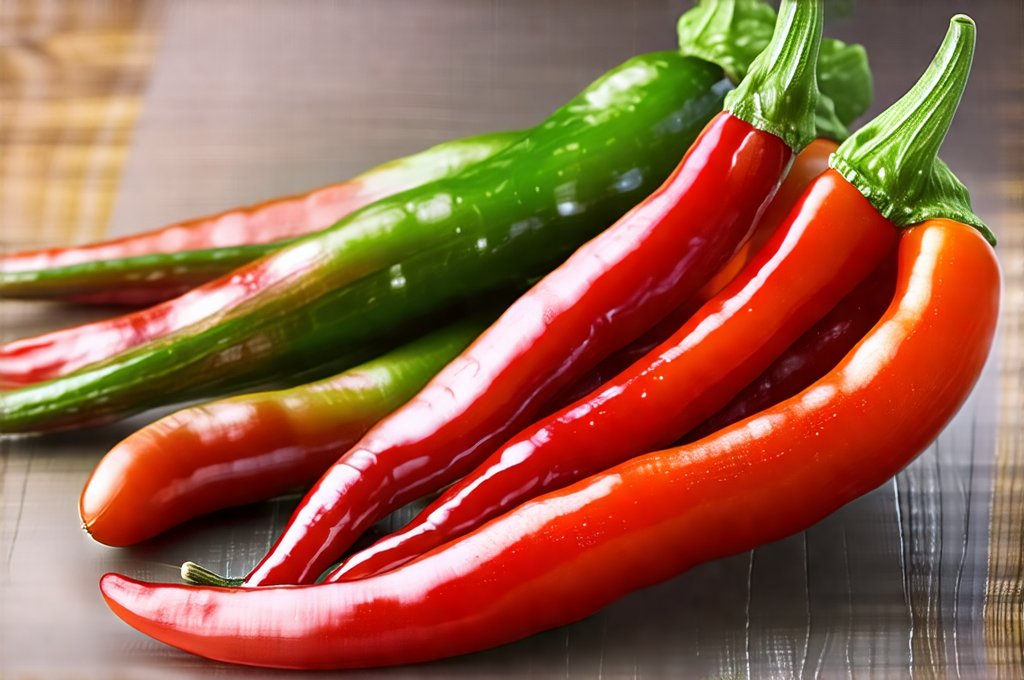Digestive discomfort is an incredibly common experience. Bloating, gas, heartburn, diarrhea, constipation – these are all complaints heard frequently from people across age groups and lifestyles. Often, we attribute these issues to stress, food intolerances, or simply “something I ate.” But what if the culprit wasn’t what you ate so much as which foods you consistently consume? A growing number of individuals are exploring the possibility that nightshade vegetables – tomatoes, potatoes, peppers, and eggplant – might be contributing factors to their chronic digestive issues, alongside other inflammatory responses. This exploration isn’t about demonizing these widely enjoyed foods; it’s about understanding potential sensitivities and making informed choices for optimal well-being.
The idea of a ‘nightshade sensitivity’ is complex and often misunderstood. It’s crucial to differentiate between a true allergy (which triggers an immediate immune response) and a sensitivity or intolerance, which manifests as more subtle, delayed reactions. Many people report improvements in their digestive health – and even reductions in joint pain and skin conditions – after eliminating nightshades from their diet, suggesting that these foods may exacerbate existing inflammation in susceptible individuals. However, scientific research specifically linking nightshades to widespread digestive problems is still limited; much of the evidence is anecdotal, based on personal experiences shared within online communities and functional health circles. It’s vital to approach this topic with nuance and prioritize a personalized approach guided by careful observation and potentially professional guidance.
Understanding Nightshades & Their Compounds
Nightshades belong to the Solanaceae family of plants, named after the genus Solanum. Beyond the common vegetables mentioned – tomatoes, potatoes (excluding sweet potatoes), peppers (bell peppers, chili peppers, paprika), and eggplant – this family also includes goji berries and even tobacco. What unites these plants are certain compounds, notably alkaloids like solanine, capsaicin, and piperine. These aren’t inherently harmful; in fact, some have medicinal properties. Capsaicin, found in chili peppers, is used in pain relief creams, while solanine, present in potatoes, has been studied for its potential anti-cancer effects. However, it’s the concentration of these alkaloids and individual sensitivities that can cause problems for some people.
The concern lies in how our bodies process these compounds. Alkaloids are naturally occurring defense mechanisms used by plants to protect themselves from insects and herbivores. They can interfere with nerve impulses and enzyme activity within the human body, potentially disrupting digestive processes and contributing to inflammation. Individuals with compromised gut health – conditions like leaky gut syndrome or inflammatory bowel disease – may be more vulnerable to these effects, as their intestinal barrier is less effective at regulating what passes into the bloodstream.
Furthermore, the way nightshades are prepared can affect alkaloid levels. Peeling potatoes reduces solanine content, while cooking tomatoes increases lycopene (a beneficial antioxidant), but also alters other compounds. The ripeness of a tomato impacts its alkaloid concentration too – green tomatoes generally contain higher levels than ripe ones. This means the impact of nightshades isn’t simply about avoiding them altogether; it’s about understanding how preparation and individual tolerance play a role.
Why Might Nightshades Cause Digestive Issues?
Several mechanisms are proposed to explain why nightshades might trigger digestive problems in sensitive individuals. First, as previously mentioned, the alkaloids present can disrupt gut function. Solanine, for example, can inhibit acetylcholinesterase, an enzyme crucial for nerve impulse transmission, potentially leading to muscle spasms and impaired digestion. Capsaicin, while beneficial in some contexts, can irritate the gastrointestinal lining, exacerbating symptoms like heartburn and diarrhea.
Second, nightshades contain saponins, naturally occurring compounds that can increase intestinal permeability – essentially contributing to ‘leaky gut.’ A leaky gut allows undigested food particles and toxins to enter the bloodstream, triggering an immune response and systemic inflammation. This can lead to a cascade of symptoms beyond just digestive upset, including fatigue, skin rashes, and joint pain.
Thirdly, many nightshades are high in fructans, short-chain carbohydrates that some people struggle to digest properly. Fructan intolerance mimics symptoms of Irritable Bowel Syndrome (IBS) – bloating, gas, abdominal pain – as the undigested fructans ferment in the colon, producing gases. This is distinct from a nightshade sensitivity, but it adds another layer of complexity when assessing digestive issues related to these foods. It’s important to consider that the overlap between fructan content and nightshade vegetables often means people attribute symptoms solely to alkaloids when fructan intolerance might be playing a significant role. If you struggle with IBS-like symptoms, understanding your stomach gurgles could provide insight.
Identifying A Potential Nightshade Sensitivity
Determining if nightshades are contributing to your stomach troubles requires careful self-observation and, ideally, guidance from a healthcare professional. The gold standard is an elimination diet. This isn’t about long-term deprivation; it’s a temporary diagnostic tool. Here’s how it works:
- Complete Elimination: Remove all nightshades – tomatoes, potatoes (white), peppers, eggplant, and any foods containing them (sauces, spices, processed foods) – from your diet for at least 2-3 weeks. Read labels meticulously!
- Symptom Tracking: Keep a detailed food diary, recording everything you eat and how you feel each day. Pay attention to digestive symptoms (bloating, gas, diarrhea, constipation), but also note any other changes – energy levels, skin condition, joint pain.
- Reintroduction Phase: Slowly reintroduce nightshades one at a time, allowing several days between each introduction to observe for reactions. Start with small amounts and gradually increase the portion size. For example, introduce tomato sauce on Monday, then bell peppers on Thursday, and eggplant the following Tuesday.
- Observe & Record: Carefully monitor your symptoms during reintroduction. If you experience digestive upset or other adverse reactions after consuming a specific nightshade, it suggests a sensitivity.
It’s crucial to be honest with yourself during this process. Don’t dismiss mild symptoms; even slight bloating or increased gas can indicate a reaction. The key is to objectively assess how your body responds. Eating during stress can also impact these observations, so be mindful of emotional eating.
Beyond Elimination: Testing and Professional Guidance
While an elimination diet provides valuable insights, it’s not always conclusive. Food sensitivity testing – IgG antibody tests – are available, but their reliability is debated within the scientific community. Many practitioners view these tests with caution, as they can sometimes produce false positives or overestimate sensitivities.
A more helpful approach is to consult a healthcare professional specializing in functional medicine or gut health. They can help you: – Rule out other potential causes of your digestive issues (e.g., food allergies, celiac disease, IBS). – Interpret the results of elimination diets and sensitivity testing accurately. – Develop a personalized dietary plan that addresses your specific needs and sensitivities. – Identify underlying gut health imbalances that may be contributing to your symptoms. Understanding signs your stomach trouble isn’t always cancer can also ease anxiety during this process.
Remember, self-diagnosis can be misleading. Working with a qualified healthcare professional ensures you’re making informed decisions based on accurate assessments. The role of endoscopy may also be recommended to rule out other conditions.
Managing Nightshade Sensitivities & Alternatives
If you identify a nightshade sensitivity, it doesn’t necessarily mean you have to eliminate these foods forever. Many individuals find they can tolerate small amounts or specific preparations. Here are some strategies:
- Focus on Preparation: Peeling potatoes reduces solanine content. Cooking tomatoes increases lycopene and may alter other compounds.
- Choose Alternatives: Sweet potatoes, turnips, parsnips, and rutabaga can replace white potatoes. Cauliflower rice can substitute for tomato-based sauces in some recipes. Zucchini or squash can often be used instead of eggplant.
- Support Gut Health: Prioritize a diet rich in probiotic-rich foods (yogurt, kefir, sauerkraut), prebiotic fibers (onions, garlic, asparagus), and anti-inflammatory nutrients. Consider working with a practitioner to identify and address gut health imbalances. How to train your gut is also key for long term healing.
- Manage Stress: Chronic stress can exacerbate digestive issues. Incorporate stress-reducing activities into your routine – yoga, meditation, deep breathing exercises.
It’s important to emphasize that nightshades aren’t universally problematic. For many people, they are a nutritious part of a balanced diet. However, for those experiencing chronic digestive discomfort, exploring the possibility of a sensitivity and making informed dietary adjustments can be a significant step towards improved health and well-being. The journey requires patience, self-awareness, and potentially professional guidance, but it’s an investment worth considering if you suspect nightshades might be contributing to your stomach issues. Building support networks can also make this journey less daunting.


















